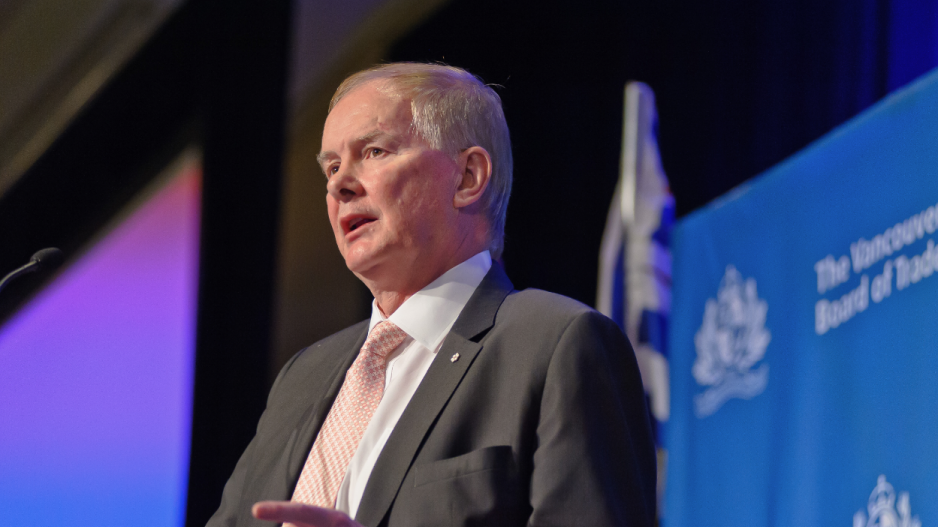In his first public address in three years, John Furlong, the former CEO of the committee that organized Vancouver’s 2010 Olympics, indicated he believes his name has finally been cleared following the conclusion of a defamation trial in September.
Furlong made similar comments in March after a judge dismissed the last of three civil suits that had been brought against him, calling that ruling the end of an “unimaginable nightmare.”
“Thank you for believing in me,” Furlong told the audience of around 500 at the November 25 event, who gave him standing ovations before and after his speech.
“Do not ever leave Canada: this is your home,” Vancouver Board of Trade chair Tim Manning told Furlong, who immigrated to Canada from Ireland as a young man, following the speech.
Attendees included Dave Brownlie, CEO of Whistler Blackcomb, Vancouver city councillor Elizabeth Ball and Trevor Linden, president of the Vancouver Canucks.
Furlong said he had been a respected and sought-after public figure following the 2010 Games. But that all came crashing down following publication of a September 2012 story written by freelance journalist Laura Robinson and published in the Georgia Straight. Eight former students signed affidavits alleging Furlong had physically and verbally abused them while he was a teacher at a Catholic school for aboriginal children in Burns Lake, a period of his life he had omitted in speeches and in his biography.
A version of the story published by the Anishinabek News went further, including an allegation of sexual abuse.
Following publication of the Georgia Straight story, the RCMP investigated the allegations of abuse but criminal charges were not recommended. The allegations have never been proven in court.
Furlong started, but then dropped, a defamation suit against Robinson. In a separate lawsuit, Robinson sued Furlong for defamation, and the case went to trial. The judge ruled that Furlong had not defamed Robinson, and, in a 97-page ruling, described several serious flaws in Robinson’s investigation of the abuse allegations.
During his November 25 speech, Furlong said that following the defamation ruling, he had been approached by a police officer and a former employee of Vancouver Community College who wanted to share their stories of being wrongly accused.
“I’ve spoken to all kinds of people who’ve been in trouble and treated extraordinarily poorly by their organizations, by media, by others, and there’s a way forward,” said Furlong in an interview with Business in Vancouver following his speech. “The advice I’ve given to everyone is that in the end, the truth is your best friend.”
Asked whether he thought there was a need for him to reach out to members of the aboriginal community in Burns Lake, Furlong was adamant that he believes he has no obligation.
The defamation suit dealt with the question of whether Furlong had defamed Robinson. Furlong interprets the ruling as having cleared his name, once and for all.
“Sorry. I think the court case is behind [me], and I’m leaving it there,” Furlong said. “I’ve said what I had to say about that case, the judge has made a decision and I don’t think there’s anything left to say about that.”
Before the scandal, Furlong had a lucrative speaking career, which he said he is now looking forward to resuming. He continued to sit on several corporate boards, including Rocky Mountaineer, Canadian Tire and Whistler Blackcomb, and served as chair of the Vancouver Whitecaps. But he said he avoided being in the public eye and did not go to the Sochi or London Olympics.
“I’m continuing to chair Own the Podium, I’m very involved in the Canadian Olympic movement,” he said. “I care very much about the fact that in this country so many children don’t get to play. It’s unacceptable. The work I’m doing is largely about trying to correct that.”
@jenstden




